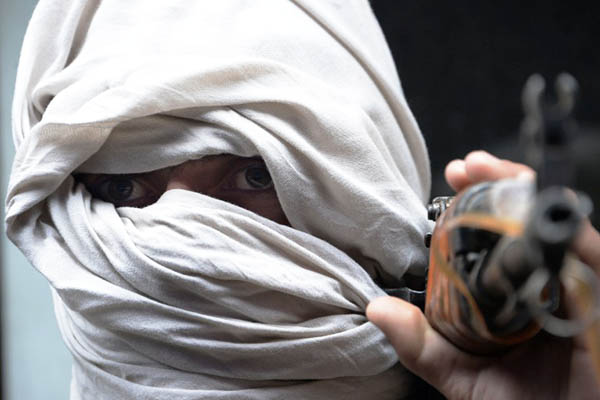
File Photo. Noorullah Shirzada—AFP
New study backs up claims of improving security, noting the past year witnessed reductions in terror-related fatalities nationwide
Pakistan in 2019 saw a nearly 31 percent drop, year-on-year, in terror and counter-terror related fatalities, according to a study released by the independent Center for Research and Security Studies (CRSS).
Using data compiled through media reports and independent monitors, the think-tank announced that in the past year restive Balochistan province remained the most affected by militancy and insurgency. Despite this, it said, it witnessed the largest drop in fatalities—44.2 percent—going from 405 in 2018 to 226 in 2019. Similarly, almost all regions witnessed a drop in fatalities caused by terror or counter-terror-related actions.
In Khyber-Pakhtunkhwa province, there was a 39 percent drop in fatalities, with the region seeing 156 deaths in 2018 against 148 in 2019; Punjab dropped by 11.8 percent, going from 93 to 82; Sindh saw a 19.1 percent decline from 121 to 98; Gilgit-Baltistan went from 7 to 0; the Federally Administered Tribal Areas dropped from 192 to 117, a 39 percent drop. The federal capital was the only monitored territory to see an increase in fatalities, going from 6 in 2018 to 7 in 2019—a jump of 16.67 percent. In total, 679 people died of terror- or counter-terror-related actions in 2019, against 980 last year.
Detailing the breakdown of the terror attacks nationwide last year, the CRSS reported that there were around 370 such incidents in 2019, as compared to almost 400 a year earlier. A major reason for the plunging fatalities, notes CRSS, is the decline in suicide attacks. In 2018, there were 26 such assaults, resulting in 295 deaths; in 2019, they dropped to 9, with 56 deaths.
Examining the breakdown by month, the most violent period of 2019 was May, with 82 fatalities. The ‘safest’ month proved to be December, with 31 fatalities.
Despite the declines, CRSS warned that civilians remained the most vulnerable to terror. Of the total fatalities, 332 were civilians, 193 security and government officials, and 154 militants.
The CRSS maintained that one of the causes of bringing militancy under control was the arrest of members of various banned outfits throughout the year. In total, says the think-tank, 141 militants were arrested of whom 32 belonged to the TTP; 24 to Jaish-e-Mohammed; 2 to Jamaatud Dawaa; 11 to Lashkar-e-Jhangvi; 3 to Al Qaeda in the Indian Subcontinent; 4 to I.S.; 2 to the Balochistan Liberation Army; and 5 to the Baloch Republican Army.
Significantly, noted the think-tank, there were no drone strikes anywhere in Pakistan in the past year. This marked the first year since 2004 that there has been no U.S. drone attack on Pakistani soil, it added.
Of the perpetrators of terror attacks, the annual report noted that it was primarily the Tehreek-e-Taliban Pakistan and Islamic State that were claiming responsibility for such incidents. In 2019, I.S. claimed one attack, while TTP and its splinter groups, Hizbul Tahrir and Jamaatul Ahrar, claimed 12.
Both Chief of Army Staff Gen. Qamar Javed Bajwa and Prime Minister Imran Khan have repeatedly said that Pakistan’s security situation is improving and is on track for enduring peace. This peace is essential for facilitating economic activity, and will help the country overcome the crises facing it.
